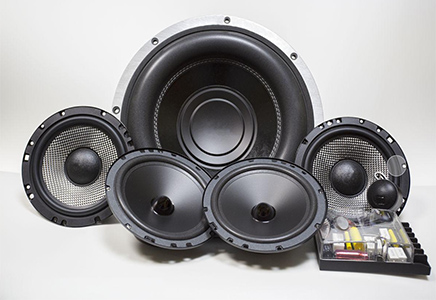The fundamental function of marine amps/amplifiers and automobile amps/amplifiers is to amplify sound signals from the source. Many manufacturers specialize in both types of amps, so you can select the perfect model for your intended purpose, whether automotive or maritime.Marine amps, in many ways, are better at working and quality than those of Car amps. Many advantages make it much superior to those of car amps. The most superficial perks make a massive difference in amps, and marine amps are better in many ways.
The circuit board of marine amplifiers has a conformal covering. Depending on how well the process is doing, the conformal coating is waterproof /resistant. The best maritime amplifiers include sealed knobs and switches as well. Waterproofing has the disadvantage of making heat transmission more difficult. They feature excellent moisture-resistant chassis that disperse heat effectively, in addition to superior electrical components. Most marine stereos have an amplifier, and some of them are relatively strong. Because human bodies can absorb much sound, the more people there are, the more power you’ll need from your Amp. If you want much thump and use a subwoofer, you will undoubtedly need a marine amplifier.

From many of the differences that are certain between car amps and marine amps, we have tried to accumulate some of them for you. Let's get rolling with them:
The majority of marine amplifiers are white in color and has a boat-oriented/marine design. Car amplifiers, on the other hand, are generally black in color. As a result, white hues on the outside of an amp are arguably the most evident sign that it is marine-oriented.When examining the Amp's innards, more physical variances will be detectable.
Unlike automobile amplifiers, marine amplifiers are being built to endure harsher conditions such as high humidity, severe outside temperatures, and salt sprays. Marine amplifier designers incorporate protection elements into the amp construction to mitigate the impact of unfavorable environmental conditions on marine amplifiers.Different maritime amplifier types and designs have extra sealing that prevents water/moisture from entering the Amp's inside. Most amp designs include additional protection in the form of a robust, epoxy-like coating that resists oxidation and corrosion in various areas of the Amp, particularly the circuit board and resistors. This layer also guards against mechanical damage to solder points and electrical wires. It's crucial to understand that while marine amps are resistant to moisture and corrosion, they are not waterproof — despite popular belief. You can't immerse it in water because water can become trapped in resistors and crossover controls, causing immediate or short-term damage.
The audio and power connectors on maritime and automobile amplifiers are of the same nature. The distinctions are found in their wiring systems. Firstly, audio signal sources and remote on-wire sources on yachts and boats differ from those on automobiles. Secondly, because many boats have two or more batteries, wiring must be done differently. Another factor contributing to the difference in the wiring between automotive and marine amps is that, unlike trucks and cars, most marines have fiberglass bodies.Because of these distinctions, while wiring marine amps, you should keep in mind the following points:
The ignition switch, remote radio, or switch output for an accessory on the control panel might all be the source of the remote-on lead wire.
Some amplifiers have an auto-sensing function for switching the amplifier on and off while using speaker-level inputs from a marine stereo. This feature is an excellent method to avoid utilizing a remote-on-wire.
The ground (-) wire from the Amp must travel to the power supply battery and be the same length as the power cord.
Without a doubt, a marine amplifier will outlast a car amplifier on a boat. That extra layer of safety goes a long way toward preventing a lot of electrical and mechanical harm to the Amp’s components.This is where we find out whether or not a vehicle amplifier can be used on a boat. If the only issue is whether a car amplifier will function in a boat, the answer is yes. It can be used on a boat, but can it work effectively as a marine amplifier? That's a no. Some users believe that vehicle amps are adequate, particularly in freshwater applications. However, just because something can work does not imply that it is a good long-term answer.
The water-resistant conformal coating on a marine amp's circuit board does a great job protecting the amplifier from extreme weather elements. However, this waterproofing has some downsides, and less efficient heat dissipation is one of those downsides.
Car amplifiers are created in such a way that heat transfer is much easier than in marine amps. Nevertheless, you can still find a marine amp that has commendable heat dissipation qualities. Some models have moisture-resistant chassis that also dissipate heat well. But as a general remark, car amps perform better than marine amps when it comes to heat dissipation. If you want an amp for a boat, you should choose the best option; a marine amplifier.